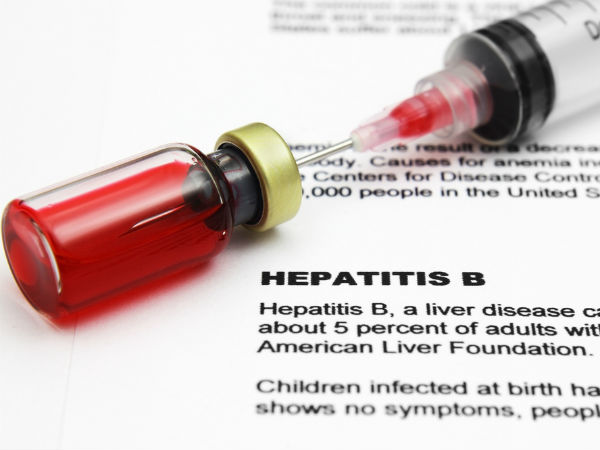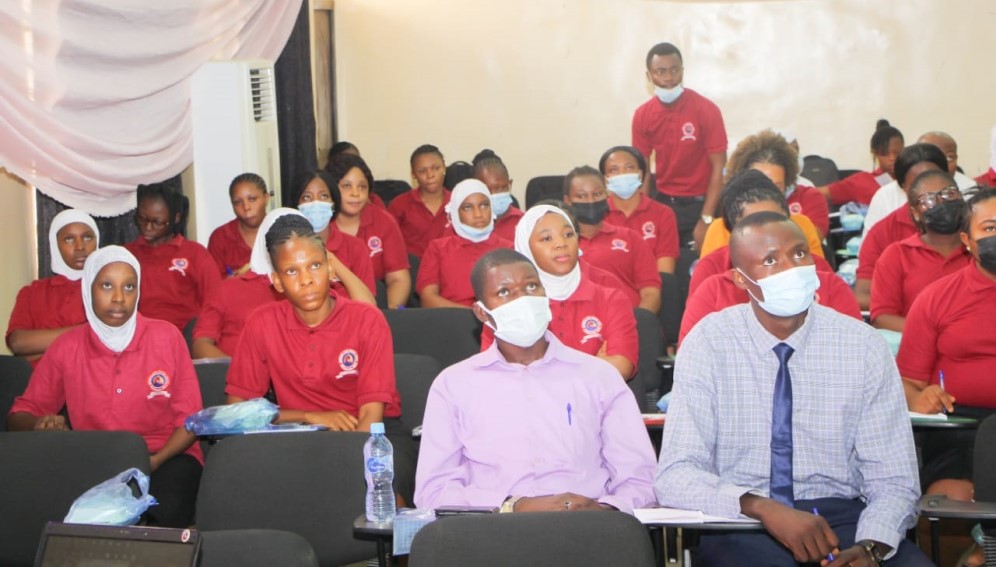Hepatitis B more infectious than HIV, expert warns
The federal ministry of health says around 20 million people in Nigeria are currently estimated to have hepatitis, but there are still major concerns around low awareness and under-reporting.
With five major strains – A, B, C, D and E — hepatitis is described as an inflammation of the liver that can be transmitted through blood and body fluids. According to the World Health Organisation (WHO), “hepatitis B and C lead to chronic disease in hundreds of millions of people globally, and together are the most common cause of liver cirrhosis, liver cancer and viral hepatitis-related deaths”.
The World Hepatitis Day is commemorated every July 28, and the theme for 2022 is ‘Bringing Hepatitis Care Closer to You’.
With close to one-tenth of the Nigerian population estimated to be infected with hepatitis, it becomes imperative to create more awareness on how a person can take measures to limit the risk of liver disease, or better manage hepatitis.
Advertisement
In a statement on Tuesday to commemorate the World Hepatitis Day, Osagie Ehanire, minister of health, expressed concern over the prevalence of viral hepatitis, adding that there is a need to increase sensitisation and improve access to diagnosis and treatment.
‘I DIDN’T KNOW I WAS INFECTED’
A 30-year-old male, who didn’t want to be named, shared his experience about living with hepatitis.
Advertisement
“I had my first test in 2013 while I was in UNILAG. I wanted to donate blood for my friend who was sick at the time, and I was told that I cannot donate blood but nobody told me why. I was given a note to see a doctor but I did not. I had no reason to,” he said.
“The second test was in 2019 or 2020. I did a test with one NGO and it came back positive. I have an uncle in Canada who is a medical doctor, so I called him.
“He recommended a liver drug for me which I bought and used, and I did not continue the usage after finishing the full dose and I have been fine. I don’t see myself exhibiting everything I have read about hepatitis B.”
‘SOME PATIENTS MAY NOT HAVE SYMPTOMS EVEN WITH LIVER DAMAGE’
Advertisement
In an interview with TheCable, Emuobor Odeghe, a consultant gastroenterologist at the Lagos State University Teaching Hospital (LUTH), spoke on the need for improved awareness, especially around hepatitis B and C, which are the most common in the country.
“Viral hepatitis caused by hepatitis B and C viruses are the most important types because they are the ones that can persist in the body and cause progressive liver disease that may result in liver cirrhosis and liver cancer,” she said.
“Some patients may not have symptoms even when the liver is severely damaged. Therefore, relying on symptoms only may be misleading and even cause late diagnosis. For those who have symptoms, they may include fever, yellowness of the eyes, deep yellow discoloration of the urine, itching of the body and pain over the right side of the upper abdomen.
“Additionally, in people with liver cirrhosis or cancer, there may be swelling of the abdomen, vomiting blood, passing black stools, confusion, change in sleeping habits, change in behaviour and weight loss. Liver cirrhosis and cancer are the major complications of hepatitis.”
Advertisement
THE IMPORTANCE OF VACCINATION
According to Emuobor, it is important to be vaccinated against hepatitis to prevent infection.
Advertisement
“Anyone can be infected with hepatitis if he or she is not protected by vaccination and gets exposed to blood or blood products that are infected with hepatitis B or C viruses — those who engage in sex with infected people, people who share sharp instruments, babies born to infected mothers,” she said.
“In these situations, infection may occur from exposure to body fluids, for example, blood and semen that harbour the viruses. This is the reason why people need to test and if negative, get vaccinated for hepatitis B. There is no vaccination for hepatitis C presently. Those who test positive should see their doctors for further evaluation.”
Advertisement
‘HYGIENE, AVOIDING SELF-MEDICATION CAN PREVENT HEPATITIS’
According to the gastroenterologist at LUTH, hepatitis prevention is largely dependent on the strain, as well as measures taken to improve hygiene and adhere to health precautions.
Advertisement
“Hepatitis A and E are mainly transmitted through contaminated food and water in conditions of poor personal hygiene and poor sanitation. So, prevention will entail improving the level of personal hygiene and sanitation. In addition, hepatitis A virus can be prevented by vaccine,” she said.
“Hepatitis B virus can be prevented by vaccination (of all newborns, unvaccinated children and adults), by avoiding sharing of sharp objects and personal items, avoidance of unsafe sexual practices, and screening of blood and blood products before transfusion. Health care workers should observe universal precautions when in contact with patients, and when handling body fluids.
“Hepatitis C virus can be prevented by simple, regular hand-washing, avoiding sharing of sharp objects and personal items, screening of blood and blood products before transfusion. Health care workers should observe universal precautions when in contact with patients and handling body fluids. Hepatitis caused by alcohol can be avoided by limiting the amount of alcohol we drink.
“Hepatitis caused by non-alcoholic fatty liver disease in people who have diabetes or high blood cholesterol levels, or are overweight or obese, can be prevented by lifestyle management, diet and regular exercise. Blood glucose, blood pressure and cholesterol should be maintained at normal levels, including with drugs if necessary.
“Some drugs can cause hepatitis, so people should avoid self-medication and use of herbal/traditional drugs. For those who already have hepatitis, it is not necessarily a death sentence as effective drugs are available for treatment. I encourage them to seek further care with their doctor.”
CHALLENGES FACING DIAGNOSIS AND TREATMENT OF HEPATITIS
According to the WHO, for most people living with hepatitis globally, efforts need to be improved with regards to access to diagnosis and treatment.
Emuobor added that for Nigeria, lack of awareness, as well as high cost or unavailability of tests and drugs are challenges restricting access to managing hepatitis.
“This lack of awareness means that people will not get tested or diagnosed, meaning that many infected people who should ordinarily be treated remain untreated,” she said.
“Another challenge is the high cost or unavailability of tests and drugs. People with hepatitis typically require many tests for their follow-up, and many of them find it difficult to afford the cost. These and other factors contribute to patients coming to the hospital with advanced disease that may be difficult to treat.”
Emuobor also said there is no need to discriminate against people living with hepatitis.
“They should also not be denied job opportunities or school admission based on their positive status. This is because these viruses are not transmitted by sitting or standing close to an infected person, or even by talking with or shaking an infected person – only through close, intimate contact. People with hepatitis can also marry, have children and live normal lives. However, they will need regular medical follow up,” she added.
THE STUDENT-LED NGO SUPPORTING PEOPLE LIVING WITH HEPATITIS B
Speaking with TheCable, Adewunmi Akingbola, a student of Lagos State University (LASU) and founder of HealthDrive Nigeria, a non-governmental organisation (NGO), said the organisation’s focus is on creating awareness about hepatitis B, through free screening and access to vaccines.
“The NGO also helps people living with hepatitis gain access to specialists for expert management in hospitals. We conduct these screening and support with subsidised vaccination. Basically, our mission is to rid Nigeria of the very prevalent hepatitis B disease by engaging in awareness campaigns, screening and subsidised vaccination exercises,” Adegbola said.
He added that since the founding of the NGO in 2019, around 6,000 people have been screened and about 3,500 vaccinated.






